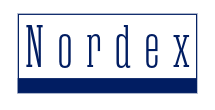Francophone Immigration Outside Quebec
Canada has introduced various initiatives to attract and retain French-speaking immigrants outside Quebec, including:
- Express Entry for French-speaking skilled workers
- Francophone Mobility Work Permit
- Francophone Minority Communities Student Pilot (FMCSP)
Express Entry for French-speaking skilled workers
To be eligible for the Express Entry for French-speaking skilled workers, you must meet the following requirements:
Express Entry Profile
- You must have an active profile in the Express Entry pool.
- You must be eligible for one of the federal economic immigration programs managed through Express Entry:
- Federal Skilled Worker Program (FSWP)
- Federal Skilled Trades Program (FSTP)
- Canadian Experience Class (CEC)
Language Proficiency
You must achieve a minimum score of 7 in all 4 language abilities (speaking, reading, writing, and listening) on the Niveaux de Compétence Linguistique Canadiens (NCLC).
Sources: Express Entry for French-speaking skilled workers – Canada.ca; Express Entry rounds of invitations: Category-based selection – Canada.ca
Francophone Mobility Work Permit
The Francophone Mobility Work Permit is a special type of work permit that makes it easier for French-speaking foreign nationals to work in Canada outside Quebec:
LMIA-exempt Work Permit
The Francophone Mobility Work Permit exempts employers from the requirement to get a Labour Market Impact Assessment (LMIA) to hire foreign workers (exemption code C16).
Eligibility
To be eligible to apply for the Francophone Mobility Work Permit, you must:
- Have a valid job offer for a skilled occupation under any Training, Education, Experience and Responsibilities (TEER) category of the National Occupational Classification (NOC) system unless the offer of employment is for a job in a primary agriculture occupation under TEER 4 and 5.
- Demonstrate that your French speaking and listening skills are equivalent to a level 5 or higher in the Niveaux de Compétence Linguistique Canadiens (NCLC) Scale).
Source: Francophone Mobility work permit: How to apply – Canada.ca
Francophone Minority Communities Student Pilot (FMCSP)
The Francophone Minority Communities Student Pilot (FMCSP) is a special program to encourage international students to study in French in communities outside Quebec.
Benefits for Students
- A provincial attestation letter (PAL) or a territorial attestation letter (TAL) is not required when applying for a study permit through this pilot.
- The FMCSP provides a pathway for students and their families to apply for permanent residence after graduation.
- Students can access settlement services to help them integrate into their new communities.
- Students’ spouse/common law partner and dependent children may be eligible for a temporary resident visa, study permit or open work permit.
Program Criteria
- The program must be at the post-secondary level.
- The program must be full-time.
- The program must be at least two years long.
- The program must lead to a degree or diploma.
- French must be the primary language of instruction (over 50% of classes taught in French).
Eligibility Requirements
- Citizenship: You must be a citizen of one of the following eligible countries:
-
- Bénin
- Burkina Faso
- Burundi
- Cabo Verde
- Cameroon
- Central African Republic
- Chad
- Comoros
- Côte d’Ivoire
- Democratic Republic of the Congo
- Dominica
- Republic of the Congo
- Djibouti
- Egypt
- Equatorial Guinea
- Gabon
- Guinea
- Guinea-Bissau
- Haïti
- Lebanon
- Madagascar
- Mali
- Mauritania
- Mauritius
- Morocco
- Niger
- Rwanda
- Saint Lucia
- São Tomé and Principe
- Senegal
- Seychelles
- Togo
- Tunisia
- Language requirements: You must achieve a minimum score of 5 in all 4 language abilities (speaking, reading, writing, and listening) on the Niveaux de Compétence Linguistique Canadiens (NCLC) scale.
- Letter of Acceptance: You must have a Letter of Acceptance from one of the designated learning institution (DLI) listed below that says you’re applying under the FMCSP:
-
- Collège Boréal, Multiple Campuses, Ontario
- Collège Communautaire du Nouveau-Brunswick, Multiple Campuses, New Brunswick
- Collège Éducacentre, Surrey, British Columbia
- Collège La Cité, Ottawa, Ontario
- Collège Mathieu, Gravelbourg, Saskatchewan
- Université Laurentienne, Sudbury, Ontario
- Université de Hearst, Hearst, Ontario
- Université de Moncton, Multiple Campuses, New Brunswick
- Université de l’Ontario français, Toronto, Ontario
- University of Alberta, Edmonton, Alberta
- University of Ottawa, Ottawa, Ontario
- University of Regina, Regina, Saskatchewan
- York University, Toronto, Ontario
- Financial support: You must demonstrate you have enough money to pay the tuition fees and support yourself and your spouse or common-law partner and dependent children, if they come with you to Canada, during your studies. The amount of money you need to prove depends on the city where the main campus of your school is located.
- Outside Canada application: You must live outside of Canada when you apply.
Source: Francophone Minority Communities Student Pilot – Canada.ca
***
Disclaimer: The content of this blog is provided for informational purposes only and should not be construed as immigration/legal advice. It is recommended that you consult with a qualified immigration professional for advice regarding your individual situation





